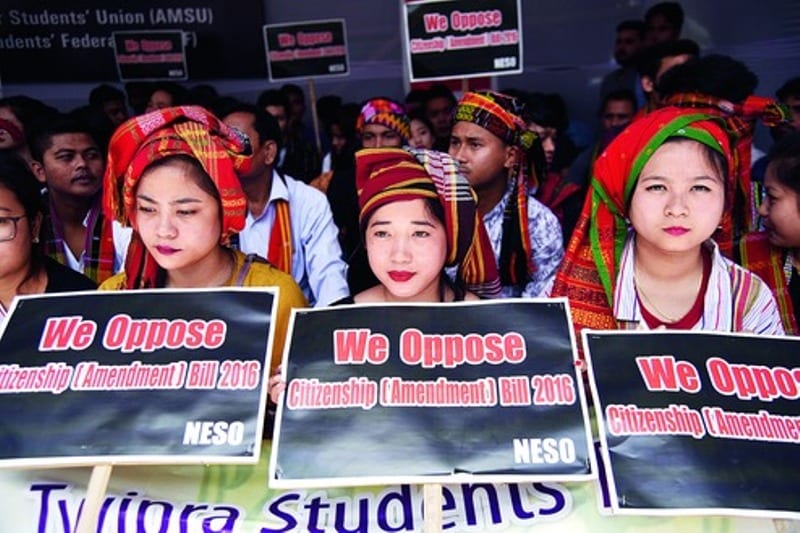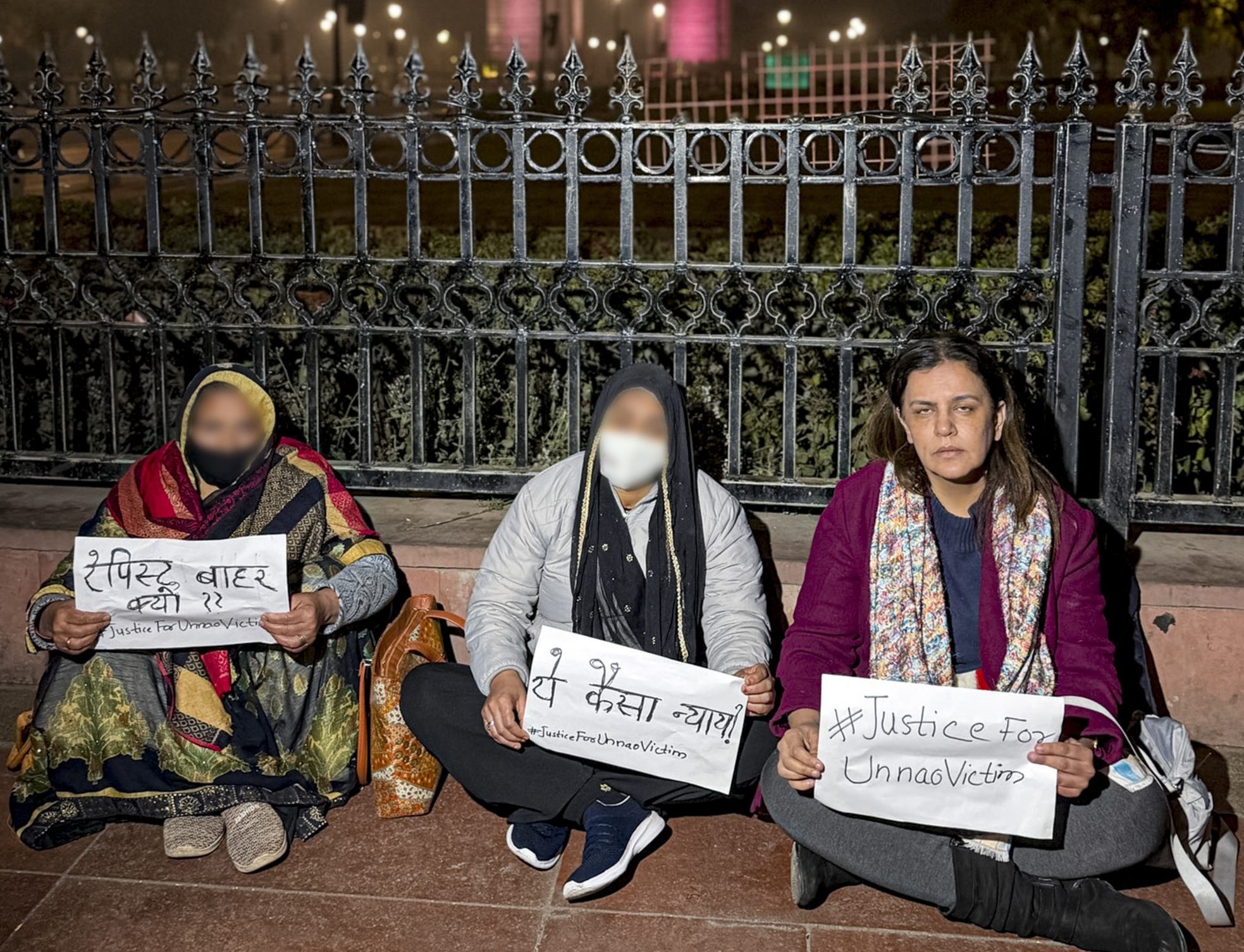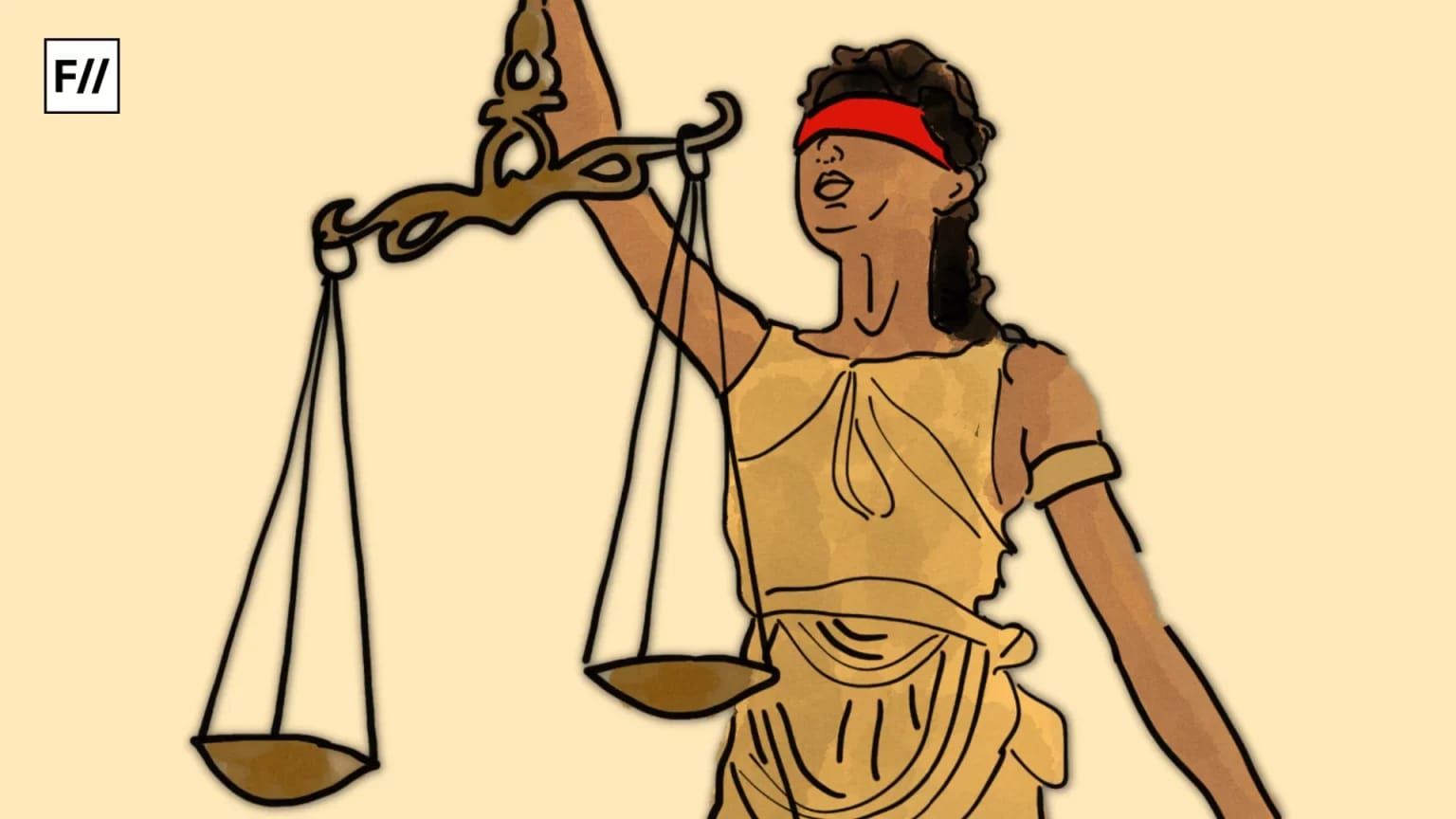The Citizenship (Amendment) Bill 2016 was recently passed in the Lok Sabha in the wake of an attempt by the ruling party to turn India into a Hindu nation. The Bill amends the Citizenship Act of 1955 to alter the definition of illegal immigrants, whilst granting eligibility for citizenship to six religions from three countries namely Hindus, Sikhs, Buddhists, Jains, Christians and Parsis from Afghanistan, Pakistan and Bangladesh.
The Bill specifies these religions and countries explicitly and in doing so, excludes immigrants from non-Muslim majority countries. Most notably, India has tried to deport Rohingya Muslims who entered the country illegally whilst fleeing persecution in Myanmar, citing national security reasons. The rationale of the Bill, however, is to protect minority communities in Muslim majority countries from persecution.
Also read: How the Citizenship (Amendment) Bill 2016 Spreads Communal Hatred And Xenophobia
Besides the obvious questions of secularism and constitutional equality, it is pertinent to ponder over the question of citizenship itself and what it means in a country like India, ranked among the world’s most unsafe for women. A broad look at the status of marginalised groups in the country who are formal citizens reveals a pattern of systematic violence, which asks the question of who is a citizen and what citizenship in India feels like. With the practice of femicide, and the presence of oppressive structural conditions for religious minorities and lower castes, and patriarchy which subordinates women at the intersection of all of these locations to almost second class status, it becomes clear that a ‘citizen’ in the eyes of the state is a Hindu, upper caste, heterosexual and cis-gendered man.
The latest Bill is alarming, but should not come as a surprise. It must also be located within the ambit of one of the many communal tussles that regularly plague the country which are highly masculinised and violent. Take the cases of Asifa and Unnao which shook our collective conscience for a few weeks and was soon promptly forgotten; when rape as merely one of the many forms of dehumanisation of women is viewed through the lens of state machinery’s collusion with patriarchy, it becomes apparent that women are second class citizens in this country and have always been so.
The latest Bill is alarming, but should not come as a surprise. It must also be located within the ambit of one of the many communal tussles that regularly plague the country which are highly masculinised and violent.
When representatives of the State rape a woman, it is a surgical dehumanisation. When the State ignores the rape of women, it ceases to see its women as citizens. When men rape women, the power that is transacted takes many forms. One is the exercise of communal dominance. Women from marginalised communities are raped to further exacerbate their marginalisation. In the politics of communalism, women’s bodies are ‘plundered’. The state not only indulges this, it is complicit in it. With Mathura, we saw the police take part in it. With Asifa, we saw the police take part in both the rape and in the cover-up. The hand of the state could not have been more evident. It didn’t even attempt to hide.
When state machinery works in favour of a climate that is conducive for the continuation of systematic violence or when the arms of the state perpetuate it directly, the ideal citizen is established as a masculine citizen, in a masculinist state. There is no place for the feminine. Minorities in this country are feminised when the rape of one of their women represents the rape of the community as a whole, and are thus by extension, defiled as a whole. Communal politics are transacted through women. And when office bearers of the state indulge this practice of communal one-upping by raping and disposing of women, the message is clear.
Women are not citizens. Women are the objects of the state, and not subjects. Women are merely bodies that do not matter to the realpolitik of India. Even several significant political offices held by women remain silent, and when they do speak they mimic the commiserations of the men in office. These women in public offices are thus masculinised, and their masculinisation is necessary for them to be where they are. The political narrative is never, or hardly ever about the security of women as citizens of this democratic nation, and policies and initiatives are instead oriented towards saving daughters. The narrative of citizenship is almost always around identity politics of religion and caste, but never gender.
When state machinery works in favour of a climate that is conducive for the continuation of systematic violence, the ideal citizen is established as a masculine citizen, in a masculinist state. There is no place for the feminine.
Increasingly, the state through its actions and silences is asserting its view of who comprises the citizenry. Of which women are worth considering as human beings. Communalism and politics are thus deeply interwoven into how the state constructs its citizen. This citizen is almost always masculine and from the dominant community in the country, and it is communalism that informs the discourse on who is to be considered a valid citizen whose life matters. The hegemonic privileging of masculine, upper caste Hindus, among others, constitutes who is worth the state’s effort, and who deserves no recourse to justice. Women however, always exist relationally to these categories and are not viewed as people in and of themselves.
In a nation where women are not citizens, therefore, where the state is complicit in their sub-humanisation, where they are sites for power struggles and not actors, where the laws treat this violence as isolated and not systematic, where religious sentiments are expressed and appeased whilst pretending like women are not stakeholders, where ruling parties remain silent in the face of rapes used as weapons in communal wars, where half the electorate is treated as though they do not comprise the nation as anything other than family to the ideal citizen, where laws still do not enter the private sphere and instead allow marital rape to continue, where due process fails, where the police who are meant to protect turn into the aggressor, where elected representatives who are meant to represent all turn to religion and use the bodies of women they are meant to serve, the State has not only failed its women. The State has ceased to function as a democracy. This is when the State has failed entirely. It is when the State has fully transformed into a masculine monolith.
Although the Citizenship Bill must be addressed on an urgent basis for its exclusionary and majoritarian implications, it makes no difference to the status of women at the intersection of various communal struggles. Or rather, it makes all the difference to the women at this intersection whose agency is negated if the status quo continues. Citizenship has always been a tool to serve majoritarian and patriarchal interests; following through on its promise of equality has always been chequered with respect to women. In the debates surrounding the current Amendment, the discourse has centred itself around religious demographic questions, and that of nativity. Citizenship is a concept that is fully realised only for a very limited section of the population who are citizens in name only, but not in practice.
Unasked in these discourses are questions about patrilineal descent, about equal opportunity sans private sphere obligations, about the lack of mobility for women in a public sphere that is hostile to them with the state being complicit in the same, about laws and institutions which are skewed against women, all of which are essential questions to be asking with respect to citizenship.
Also read: Gender-Specific Laws: What The Nation Wants Vs. What The Nation Needs
The discourses now, therefore, concern male stakeholders who are interested in maintaining communal purity or status quo, and exclusionary laws such as this one cater to powerful men who seek to assert themselves through their upper caste Hindu privilege. Citizenship has never concerned women, and its time we re-evaluate what it means to be a citizen in order to accommodate everyone on equal terms.
Featured Image Source: The Sentinel
About the author(s)
Rohitha Naraharisetty is a student of Development Studies at IIT Madras. She is interested in gender studies, aspires to smash the patriarchy, and is terrible at writing clever bios.




